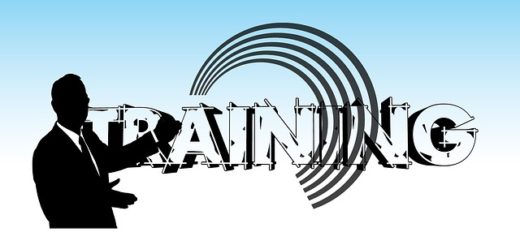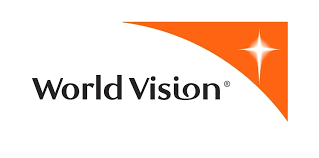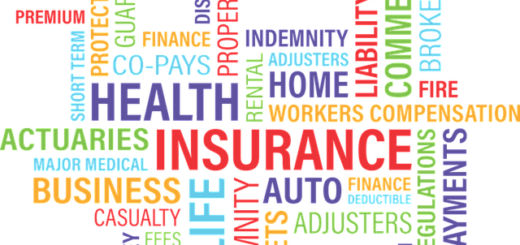Consultancy Service to Digitalize Community Referrals Directory for Social and Legal Support Structures, Kenya Red Cross Society
1.1 Summary
1.1. Purpose: To procure consultancy services for digitalization of Community referral directory for Legal and Social support structures.
1.2. Donor: Global funds HIV Grant
1.3. Duration: 20 working days
1.4. Estimated Dates: 17th October 2022 to 14th November 2022
1.5. Target Population: Adolescent and young people (AYPs), People living with HIV (PLHIVs), Key populations (KPs) and other vulnerable populations (VPs)
1.6. Deliverables: Digitalization of community referral directory for legal and social support structures.
1.7. Management Team: KRCS Program team.
1.2 Description of the project
Kenya Red Cross Society (KRCS) is the non-state Principal Recipient (PR) for the Global Fund HIV Grant, running from July 2021 to June 2024 (NFM3). The goal of the grant is to contribute to the attainment of universal health coverage through comprehensive HIV prevention, treatment and care for all people in Kenya while the objectives is to reduce new HIV infections by 75%. reduce AIDs related mortality by 50% and reduce HIV related stigma and discrimination to less than 25%.
The Constitution of Kenya (2010) contains a comprehensive Bill of Rights. Article 43 guarantees all Kenyans their economic, social, and cultural (ESC) rights. It asserts the “right for every person to social security and binds the State to provide appropriate social security to persons who are unable to support themselves and their dependents.” This right is closely linked to other social protection rights, including the right to healthcare, human dignity, reasonable working conditions, and access to justice. Article 21 establishes the progressive realization of social and economic rights and obligates the State to “observe, respect, protect, promote, and fulfil the rights and fundamental freedoms in the Bill of Rights.”
1.3 Background
Kenya’s HIV program is premised on making health services available, accessible, and acceptable through the removal of human rights and gender-related barriers to access to HIV services, including through stigma and discrimination reduction. Despite all the efforts, barriers to service access still exist, and therefore continued advocacy efforts need to be sustained.
Stigma and discrimination, across multiple different settings and relating to people living with HIV and TB, key populations and adolescents and young people persist as deep-rooted problems which remains a barrier to access to healthcare. Access to justice is a fundamental right, as well as a prerequisite for the protection of all other human rights. The success of HIV prevention efforts is dependent on protecting and promoting the rights of those who are socially excluded, silenced, and vulnerable. This will enable groups that are disproportionately vulnerable to HIV infection, such PLHIV, KPs and AYPs to recognize rights violations, assert and defend their rights through individual and collective action.
Strengthening access to social and legal support services requires several steps, including educating people about their legal rights, building the capacity of communities and linking legal and social support services. Many people suffer because they lack access to legal and social services and their rights are routinely violated.
1.4 Current situation
The Department of Social Development currently falls under the Ministry of Labor and Social Protection. It has existed in various forms under different Government ministries and institutions since pre-colonial times. The mandates and functions of the Department have also changed over time. The core duties carried by officers in the Department have historically focused on the welfare of the family, women, Children, older persons and other vulnerable groups with special attention accorded to Persons with Disabilities (PWDs)
Social protection is recognized as a core and essential public service, alongside other services. The national social protection sector comprised three pillars which includes;
- Social assistance, which offer ‘direct cash transfers to poor and vulnerable people over their life-cycle’ and, in Kenya, are financed either from general government revenues or by donors.
- Social security, which is financed by contributions from individuals and employers and aimed to offer ‘retirement schemes to informal sector workers and to increase the range and adequacy of NSSF benefits.’
- Health insurance, which was also financed by contributions from individuals, employers or government and aimed to offer all citizens access to health services including health and education.
Several nongovernmental organizations (NGOs) in Kenya provide legal services yet these organizations lack the resources and capacity to take such services to any meaningful scale. Individuals seeking legal services face a host of barriers—lack of information, poor proximity to courts, lack of faith in the justice system, corruption, and economic disempowerment—that can and should be addressed through targeted and integrated interventions.
There are no existing structures that incorporate legal and human rights advocacy into existing programs which can support beneficiaries to be referred, and provided with opportunities to access justice when their rights are violated. Strengthening access to legal and social support services requires several steps, including educating people about their legal rights, building the capacity of both governmental and traditional legal structures, linking legal services to opportunities for economic empowerment, and supporting partnerships between community-based legal services and national advocacy campaigns against corruption, gender discrimination, and other systemic abuse.
2.0 Consultancy
KRCS seeks the services of a consultant to digitalize Community referral directory for legal and social support structures at the county and community level. The consultant will digitalize the referral directory that will enhance knowledge on the rights of people living with HIV(PLHIVs), adolescents’ and young people (AYPs), Key populations (KPs) and other vulnerable populations to understand where to access social and legal support services as well as improve access to justice in real time.
To respond to this intent, KRCS is seeking to recruit a qualified and experienced consultant for a short-term contract to support in digitalization of community referral directory for legal and social support structures. The consultant will digitalize referral directory focusing on social support structures on provision of social assistance, access to economic, social support and provision of livelihood support to individuals. The specific support includes and not limited to the following;
- Cash transfers and conditional cash transfers, Food Subsidies, Direct Feeding Programs, School-Based Food Programs, social Health Insurance (NHIF&NSSF), Microfinance.
- Foster home for children with disability.
- Nutrition, Reproductive Health, WASH, Livelihood and Child sponsorship,
- Shelter and care, Child protection and Education and rescue centers
- Household Empowerment strengthening
- Psychosocial support Counselling and referrals including for FGM related issues.
- Safeguard and protect the rights and welfare of children.
- Orphans and vulnerable populations (OVC) support, young girls’ empowerment and child sponsorship.
- Health services for OVCs and Mental health support.
- Scholastic support for vulnerable children.
The legal support structures include provision of legal information, linkage and referral for legal support, link to pro bono services, legal counselling, litigation and legal representation. This includes but not limited to;
- GBV prevention and responses initiatives.
- Integrated services for SGBV survivors
- Support for GBV survivors, psychosocial Support
- Linkage to safe house and, temporary shelters for GBV survivors.
- Rehabilitation of non-custodial offenders.
- Harm reduction referrals.
- Collection of specimens for screening for GBV.
- Alternative Community dispute and conflict resolution.
- Support for legal aid and litigation
The consultant will digitize the referral directory documents and provide the resources required for each stage by creating a one-stop shop to ensure easier access and use for all persons in need of the legal and social support information and services.
2.2 Objectives of the Consultancy
The Overall Objective of the Consultancy is the digitization of the community referral directory for legal and social support structures. The Social support structures includes the provision of social assistance, access to economic, social support and provision of livelihood support. The legal support structures include provision of legal information, linkage and referral for legal support, link to pro bono services, legal counselling, litigation and legal representation in the 47 counties of Kenya
The Specific Objectives of the consultancy include the following:
- Define the current referral system, and the current tools being used to strengthen the legal and social support system.
- Devise a system to ensure direct access to information or resources on where users may gain specific services within the community and at the county level in all 47 counties.
- Map the services to be provided by the participating stakeholders and show the links of the services.
- Provide an opportunity for users to give feedback on any bottlenecks or loopholes that may be experienced in the use of the referral directory
2.3 Expected Outcomes of the digitalized community referral directory
The digitized referral directory will provide the following:
- Provide direct access to resource areas referenced in the referral directory to ensure access to all service providers within the community actors that can provide assistance.
- A method to analyze the number of persons making use of the referral directory in order to collect data on its use, in line with the Data Protection Act.
- An administration panel for the system administrators to update and access the system’s database.
- Referral Map and Directory to be adopted nationally in Kenya after digitization.
2.4 Scope of work
The consultant will be mandated to digitalize community referral directory for legal and social support structures focusing on social assistance, access to economic, social support and provision of livelihood support while the legal support structure will focus on provision of legal information, linkage and referral for legal support, link to pro bono services, legal counselling, litigation and legal representation
The consultant will use the existing database developed through the sub recipients working with KRCS under the Global funds HIV Grant and ensure provision of additional information that might not have not been included in each of the counties. The consultant will also be expected to include information for other counties not included in the existing database as what is in the existing data base is only a guide to ensure holistic social and legal services are included and digitalized in the referral directory.
2.5 Duration of the assignment
The assignment should be completed within 20 consecutive working days after signing the Agreement, including inception report, review of relevant materials, development of drafts and review and finalization of the referral document and referral map.
2.6 Deliverables
The key deliverables for the assignment are as follows:
- a) Inception report, prepared after an inception meeting with final work plan and timelines as agreed on with KRCS
- b) The digitized system on the use of the referral directory with an opportunity for users to give feedback on any bottlenecks or loopholes that may be experienced in the use of the referral directory.
- c) Referral documents and all other materials related to this assignment
2.7 KRCS Deliverables
KRCS shall avail relevant reference materials, review drafts and provide comments to the consultant to finalize the digitized referral directory. The roles will be further defined at an inception meeting.
2.8 Qualification of the consultant
- a) Functional Competencies:
- I) Expert knowledge on Management of Systems;
- ii) Knowledge of the national GBV situation and its management challenges;
iii) Extensive knowledge and understanding of sexual reproductive health and rights (SRHR)
- iv) Experience in conducting research and desk reviews;
- vi) Excellent ability to write and articulate issues in a concise language;
vii) Advanced Degree in one of the following:
- Computer Science
- Information technology
- Management information systems
All Bidders are required to meet the following minimum requirements in order to qualify for submission of their proposal:
- Previous experience in similar assignments.
- Capability of the assessment team: Team member(s) shall relevant experience as stated above.
- Attachment of all supportive documents with the technical proposal is required.
2.9 Application Requirements
Application materials shall include:
- A written response to this TOR in terms of a proposal detailing the technical understanding of the task, proposed methodologies of execution of the assignment, expected activities and deliverables, proposed work plans with schedule, and financial bids. See Annex 1
- Detailed CVs of all professional (s) who will work on the assignment. If there is more than one consultant on the proposed team, please attach a table describing the level of effort (in number of days) of each team member in each of the assignment activities. See Annex 3.
- Professional references: please provide at least three references from your previous clients and full contact details of the referees
2.9. Submission of proposal
The Technical Proposal MUST be prepared in conformance to the outline provided in Annex 1 while the financial proposal shall conform to the template provided in Annex 2. Team composition should conform to Annex 3
Bidders should provide technical and financial proposal in two separate folders clearly marked “Technical Proposal” and “Financial Proposal” and emailed to tenders@redcross.or.ke clearly marked in the subject line; Tender Number – “GFPREQ01917 – Consultancy Service to digitalize community referrals directory for social and legal support structures”
The Proposal should be addressed as below and emailed to tenders@redcross.or.ke by Wednesday, 21th September 2022 at 11.00 a.m.
Chairperson
Tender Committee
Kenya Red Cross Society
Access the full tender document at https://www.redcross.or.ke/tenders








